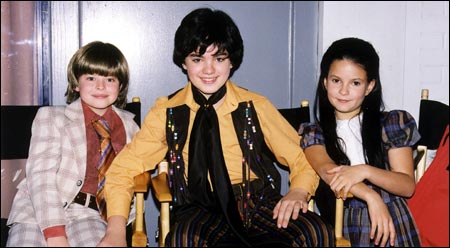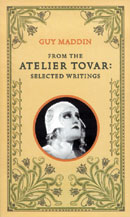 |
Here's a link to the Pound poem I mention below in "GATT Freedom", and an excerpt from the first part. It was never one of my favorite of his, but it always stuck in my mind since there are rarely offered anything like glimpses into his private life in the early work, nor in the later for that matter (before Pisa, if one could call that "private"). I never found this poem convincing, though I like the stanza beginning "Their little cosmos is shaken..."
Villanelle: The Psychological Hour by Ezra Pound
I HAD over-prepared the event—
that much was ominous.
With middle-aging care
I had laid out just the right books,
I almost turned down the right pages.
Beauty is so rare a thing …
So few drink of my fountain.
So much barren regret!
So many hours wasted!
And now I watch from the window
rain, wandering busses.
Their little cosmos is shaken—
the air is alive with that fact.
In their parts of the city
they are played on by diverse forces;
I had over-prepared the event.
Beauty is so rare a thing …
So few drink of my fountain.
Etc. etc.
[The Guy Maddin story about ABC filming the Osmonds docudrama in Winnipeg is still online -- excerpt below. I think it's a longer version of this story included in From The Atelier Tovar but I could be wrong.]
The Village Voice: Features: Death in Winnipeg by Guy Maddin

Thomas Dekker as Donny (center), with Taylor Abrahamse (Jimmy) and Taylin Wilson (Marie)
photo: Guy Maddin
The fine young artificial brothers, looking warm and cozy beneath period-perfect wigs, are power-chording unplugged guitars and lip-synching to "Crazy Horses," one of the Osmonds' zestiest sorties into Mormon rock. These early-'70s proto-mullets are so natural I'm no longer self-conscious about my own new toupee, which I'm debuting on this occasion. Clad in buttery-soft, fringed white kid leather with matching macramé belts and white platform boots, the five counterfeit siblings retrace to perfection the famously wild and white choreography unleashed on a semiotics-ignorant public almost 30 years ago. These osmonoid performers are really caught up in the song's feral rhythms, rudely beating on brazen vessels, bellowing like stags, and harmonizing like horny barbers: "What a show, there they go, smokin' up the sky-y-y-y-y-y—yeah!!! Crazy horses, all got riders, and they're you and I-I-I-I-I-I-I-I—I!!!" When the number is over, I forget myself and—this is inexcusable for a supposed filmmaker—applaud wildly, actually ruining the take, because the cameras are still running, and the sparse audience in the scene is supposed to be apathetic. Sheepishly, I promise to stopper my fervor. Fortunately, the next take is the keeper.

Just finished reading this one last week -- given to me by its editor, Darren Wershler-Henry, a sort of cornucopic chuckle-patch of diverse, earth-shaking cultural products, on his most recent trip to New York.
This book is so great and beautifully, apparently effortlessly, written -- the VV actually used the word "disgustingly" to describe the feeling one gets, as a writer, reading such amazing prose, but I'd be risking a revolt to agree -- I can't help but think a "best poetry book of year" huzzah andor encomium would be forthcoming were one to edit out the narrative continuities (and maybe some of the bits about losing weight), letting the flow of the Proustian rambles take centerstage.
Some of it reads like part of Rimbaud's Illuminations, and the longish autobiographical film treatment, "A Child of No Qualities," riffing off the title of Robert Musil's famous novel, suggests what Maddin could do were he to devote a book to a single work. Not that I would want to see a halt in the production of the films, which include Careful (one of Ashbery's all-time favorites, I hear), Archangel, Tales from the Gimli Hospital (just caught that on tape), Twilight of the Ice Nymphs, and the amazing 5-minute pseudo Soviet agit-prop Heart of the World (the cover image of the book is of the heroine in that film).
Here's a slice from one of his reviews for the Village Voice -- I don't know if Maddin included the unedited version of this piece or the version that I am presently copping from the VV's website. (I can't help but think that J.H. Prynne's next chapbook is going to be called "Unprecedented Posture of Prurience Enmarbled.")
"Savagely lashed by her own tresses while Destiny blasts her soul, the diva cries out for vengeance, cries out with her entire body, and this is what is most spectacular about the diva film—the vocabulary of the body! Aided only in part by as many as 30 drool-inducing costume changes per film, the diva's body twists and ripples in endless metamorphoses expressing wave upon wave of inner tumult. Ever so slowly—for the film's time is the diva's time!—and in a fashion completely alien to our New World eyes, do the torso and its limbs strain toward an unprecedented posture of prurience enmarbled, and upon achieving this shocking pose, move on to the next astonishing attitude, unfurling the fingers first, languidly allowing these digits to splay about the face and the bosom of the diva and in so doing inscribe upon those marvelous surfaces the plots of all stories from all times.
During the screenings you can't help imagining you sit next to Wayne Koestenbaum, that great curator of history's taxidermied opera divas, chronicler of their conduct, and exegete of their every signifier. You pretend you've introduced him to these florid films and by doing so you've struck him dumb. The cine-diva's vocabulary smites him with its vastness, strangeness, and uncanny accessibility—like hieroglyphics made suddenly readable."
This is of the slighter journalistic pieces in the book -- the best and perhaps most developed is his story on the filming of the Osmond's biopic in Winnipeg -- you can probably find that online also -- in which he strikes a peculiarly intimate friendship with the actor that plays the young Donny. BTW, I ran into Wayne Koestenbaum in the elevator today and discovered he's an occasional "anonymous" reader of FSC (which, in case you haven't noticed, is somewhat more lively recently, both with my activity and that of the avenging spam).
[The French poet Denis Roche was first published in the Winter 1962 issue of Locus Solus, edited by John Ashbery. Roche went on to become associated with the journal Tel Quel, to write the 500 or so pages of his collected poems, titled La Poesie est Inadmissable (published in 1996 though the last poems in there are from 1972), and then to stop writing poetry and become a photographer and devote himself to editing at Seuil. At least that's the sketch of his life I have klunking around in my head. Here are the three poems from Locus Solus; in them you can find several phrases that have eerie resemblances to things Ashbery would later write, such as Roche/Ashbery's "a kind of undulation which overtakes me delicately" presaging the line "and then I get this feeling of exhaltation" from I believe the book Rivers and Mountains. The "Denis Roche bootleg" is forthcoming on this site, and following that I hope to edit a book of translations of his complete work.]
Three Poems for Locus Solus
As a matter of fact that bird how many
Chances didn’t I have to know its identity
However it let its spoor die and
The effluvium underneath lost with perfetion
Why should I throw myself
In this hot marsh weather putting in
Diplay windows for a virgin of whom
The memory is enough for me only at the
last noise of the
Battle here I am come toward the dying pine
Two cents would be enough to buy it
A new root and a pitcher so that once
Again would shine in it the black values of
The earth The only effect that has on me is a
Kind of undulation which overtakes me delicately
What silk doesn’t waken in me orisons that I
Don’t know are rapid and final?
Tears allowing one to think that there are
Memories whose beauty surprised in the bath
Introduces itself in another dimension
I no longer restrain myself through things
I pass by them whistling
Lowering my window as I pass and they
Constantly recur in various tonalities
It suits me now to be
A follower of leaves and to be admired for it
Like a slightly bigger leaf
Lived-in perhaps but undernourished
I content myself with being glimpsed
And carefully I cultivate existence
Which is supple says my girlfriend the sensitive one
Which is woody says the tropical vine which is coming
Toward me half president wife and half negress
For she too knows these natural outbursts
If you look closely leaning over and weeping
The sensory organs watered
Continuing to slide at a speed which
Could be considered normal for
Machine-tools vegetable strainers
In front of little cars in which we
Practically haven’t slept at all
Enigmatic we were passing the ointments from
Hand to hand very much at ease feeling
Furtive noises float
But what actually happens?
Necklaces of men lying down in the allée
Pigs who seem innocent departed
Henceforth on a spree like us
Not even looking for the road to the station
Leaving there every time
Mother of pearls trails
Christopher Hitchens on the nature of generational identity -- which I myself always found rather silly, as if every poet born in 1926 had something to do with the others -- in his usual succinct terms. What does one do to become part of one's time, I guess is the question.
So let me ask you, how do you think you were affected by the sixties?
I have no choice but to put myself in a political generation. But I'm glad you say the sixties because I've always thought that of all the kinds of human solidarity, the generational is the lowest. (I wish I could find out the name of the person who said that.) Because what do you have to do except have an accident of birth? I mean, to be a sixties person, all you have to do is to be born in a certain year, like select wine, except not as good. To be a '68-er, however, a "soixante-huitard" -- we even have a French term for it now -- you have to have been someone who in some sense felt or saw the '68 crises coming, and was, in some sense, ready for it, or, if not that, was totally swept up in it, realized that here was a crux moment, a hinge year. I'm lucky in that I made my decision that I thought it was going to be key in '67, the year I went to Oxford actually, and joined a small Trotskyesque/Luxembourgist organization, which in the next year quadrupled ... no, much more than quadrupled its membership.
Conversation with Christopher Hitchens, p. 2 of 5